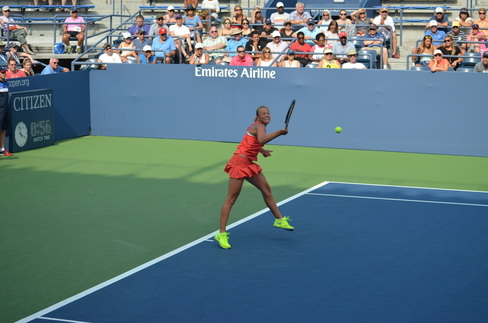It goes without saying that the health of a tennis player is dependent on their support team. There seems to be a growing epidemic of injuries at all levels, from professional players pulling out of major tournaments to young players missing practice time. I have seen too many injuries happen at all levels because decisions are often made based on one’s own individual wants, athletes not taking the advice of their team or lack of planning. Whether it’s a young athlete or a professional one, health decisions must be made with the input and sincere commitment of each team member. This input must be based on the best interest of the athlete, and not on an individual’s ulterior motives.
It may seem funny to some that I said “sincere commitment.” I have often witnessed coaches, trainers and parents that put their own personal needs ahead of the player’s. This can happen for various reasons, like one’s own potential financial gains, ego or lack of commitment.
Coaches that give lessons or training sessions to players who have injuries have always fascinated me. I cannot understand a coach that would book or give a lesson to an athlete knowing that they are suffering from an injury. This is often leads to the session being cut short or “working” on other aspects of their game. Funny thing about pain, playing or training with it does not make it better. Easy rule to follow: does it hurt, yes or no? Anything but a firm no means yes. I am completely aware that there are training sessions that can be done and will not affect the injury negatively. I am not talking about helping to rehab or not doing serves because everything else is ok to do. But far too often it results in the athlete admitting that they felt pain at some point in time during the training. It’s not enough that training sessions take place while the athlete is injured, as it is also expected that the athlete return to play at the same intensity and duration. Returning from injury is a process. If the process is forced, chances are the injury reoccurs. There is nothing wrong with a shorten practice when starting back. Better to get off the court early and pain free, then to continue and take a major step back. Let us not only put the onus on the coaches. What about the parent that allows this to occur? Unfortunately, sometimes the reasoning is that there is a tournament coming, or cancellation fees might apply.
Coordinating an athlete’s schedule requires great planning and so does putting that plan into action. Showing up and deciding on the spot what needs to be done, not planning the tournament schedule or continuing to overload the athlete at every turn is a sure plan for failure. The team should all be on the same page, with the athlete, on what the course of action is for the year. Overzealous trainers trying to prove their worth with inhuman workouts are not on a constructive plan of action. You cannot build someone up by destroying them each time. Coaches and parents that sign up for every tournament without any focus on recuperation is counterproductive, again just looking for those extra points and or other gains. We must remember that a career, especially at a young age, is part of a very long journey. Pushing through injury can be seen as brave and warrior-like, but at what cost for the young player. I am not at all saying that training should stop or a lesson cut short because of some of the discomfort that is associated with elite training. But when it increases the magnitude of the injury and risks a longer absence from tennis, then I think we all have to pay attention and re-adjust.
For the young athlete, parents should take the advice of the training team. If the parent is not confident with the decisions being made, then changes in the coaching staff should be made. Often in fitness the parents want a big emphasis on tennis-specific training for athletes of a young age. Building an athlete is the goal. Specializing too early may bring early rewards but will eventually lead to a tennis player with sub-par athletic ability.
Lastly, let’s not forget the player’s involvement and commitment. The player needs to be present not only physically, but also mentally and emotionally. All the training in the world is pointless unless it is accompanied with a great sense of purpose. I have seen athletes that don’t care and go through the motions, hoping for the best come match day. Time on the court does not always dictate success.
I believe that for the most part, coaches and parents have the wellbeing of the player at heart. Working together with passion and commitment towards a common goal will ultimately lead to the best possible success that the athlete can obtain. Developing an athlete safely and smartly is all that can be asked. Besides the physical, great coaches help develop a better person, which will last a lifetime. At then end of the day, that is why we coach.





 RSS Feed
RSS Feed
